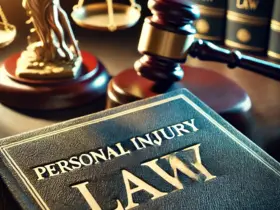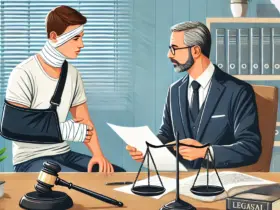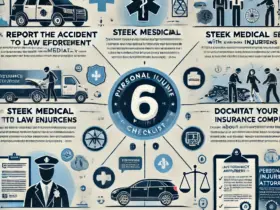Social media connects you with others, but it can harm your personal injury claim. What you share online can affect the success of your case. Every post, photo, or comment is public information. Insurance companies may use this to dispute your claim. They scrutinize your social media presence and can use it to argue against your claims of injury or limitation. Even a simple post about an outing can lead to questions about the severity of your injuries. It’s crucial to understand how these platforms can impact your case. Exercise caution and discretion with every online interaction. Ensure your privacy settings are strict and avoid discussing case details. Instead, focus on healing and following medical advice. This approach is more effective than risking the integrity of your claim for a moment of sharing. By staying informed, you maintain control and protect your interests. For more precise guidance, visit our website.
Understand the Risks of Social Media
Every time you log onto social media, you enter a public domain. What appears private can quickly become evidence against you. Claim adjusters look for inconsistencies in your claims and your online activity can provide that. Imagine posting about a day at the beach. It may seem harmless, but it can cast doubt on your injury severity. Avoid posting anything that might contradict your claim. Focus on privacy and set your accounts to the strictest settings possible.

Practical Steps for Managing Social Media
To minimize risks, consider these steps:
- Review privacy settings on all platforms.
- Avoid posting any details about your accident.
- Advise friends and family not to tag you in any posts.
- Refrain from posting photos or updates about physical activities.
- Consult with legal experts before making any online statements.
These steps protect you and bolster your claim. It’s crucial to stay vigilant and mindful of each interaction online.
Why Insurance Companies Eye Social Media
Insurance companies seek to reduce payout amounts. They look for evidence online that contradicts injury claims. A casual photo can lead them to question your honesty. They may argue that your reported injuries do not match your apparent physical capabilities. This tactic can lead to reduced compensation or even denial of a claim. Remaining cautious and limiting your social media footprint is essential.
Impactful Examples
Consider these scenarios:
- Posting about a sports event attendance while claiming mobility issues.
- Sharing photos of a recent vacation that question your reported pain levels.
- Commenting on activities that require physical exertion inconsistent with your injury claim.
These examples highlight how seemingly innocent posts can unravel personal injury claims. Always think before you post and consult with legal professionals if uncertain.
The Role of Legal Guidance
Legal experts provide essential advice to navigate your claim. They help interpret how social media can impact your case. Consulting with a knowledgeable attorney can prevent costly mistakes. For further reading, Cornell Law School offers resources on evidence collection, including social media.
Social Media and Evidence: A Comparison
| Factor | Impact on Claim |
| Private Account | Limits public access to posts, but doesn’t eliminate risk. |
| Public Posts | Fully accessible, high risk of misuse by claim adjusters. |
| Tagged Photos | Can be used as evidence even if not posted by you. |
The Importance of Privacy
Privacy settings act as a first line of defense. They don’t provide full protection, but they help. Regularly review and update your settings. Limit who can see your posts and who can tag you. Protect your privacy like you protect your health. Be vigilant and consistent in your approach.
Stay Informed, Stay Safe
Education is power. Understanding the role social media plays in personal injury claims helps you make informed decisions. Stay aware of risks and consult reputable sources. The USA.gov website offers comprehensive guidance on managing privacy and security online. Use these resources to stay ahead and secure a strong case.
By following these tips, you protect your rights and enhance your claim’s integrity. Prioritize discretion over disclosure and seek expert advice when needed. Remember, your actions today shape the outcome of your case tomorrow. Stay cautious and informed.




